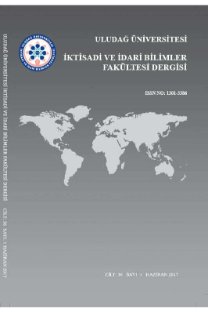Uluslararası alanda polisiye işbirliğinin Gelişimi: Avrupa örneği
Günümüz dünyasında uluslararası ilişkilerin yaygın karakteri, sanıldığının aksine çatışma değil işbirliğidir. Devletlerin işbirliği yapmasında maliyetleri düşürmek, verimliliği arttırmak ya da ortak tehditlerle mücadele etmek gibi bir takım unsurlar etkin olabilmektedir. Ancak kabul etmek gerekir ki, devletlerin işbirliği yapma istekleri hemen her konuda aynı derecede olamayabilmektedir. Özellikle güvenlikle ilgili alanlarda devletlerin işbirliğine daha çekinceli yaklaştıkları görülmektedir. Bu, uluslararası alanda polisiye işbirliğinin henüz istenilen düzeye ulaşamamış olmasının da temel gerekçesidir. Uluslararası anlamda polisiye işbirliğinin en yoğun görüldüğü alan ise Avrupa’dır. Uzun ve ağır işleyen bir süreç neticesinde Avrupalı uluslar, kendi aralarında polisiye işbirliğini mümkün kılan ve kolaylaştıran bir takım girişimlerde bulunmuşlardır. Şüphesiz ki, bunda Avrupa entegrasyon sürecinin yaratmış olduğu karşılıklı güven ortamının da önemli bir katkısı bulunmaktadır. Özellikle Avrupa Birliği’nin kurulmasının ardından yaşanan gelişmeler, nihai biçimini Europol ile bulmuş olan Avrupa’daki polisiye işbirliği açısından önemlidir. Çalışmada, bu sürece katkı sağlayan hukuksal ve kurumsal gelişmeler tarihsel bir perspektiften ele alınmaktadır.
In contemporary world, international relations’ prevalent character, contrary to the expectations, is not conflict but cooperation. For states’ cooperation, a set of subjects like to decrease costs, to increase efficiency or to struggle against common threats can be effective. However, it must be accepted that states’ willingness to make cooperation may not be at the same level in almost all issues. It is seen that states are less willing to make cooperation especially in security issues. This is the fundamental reason of the fact that international police cooperation has not reached to the desired levels yet. The region where international police cooperation exists most intensively is Europe. As a result of a long and slow-moving process, European nations have taken a set of initiatives that enable and facilitate police cooperation among their selves. Doubtlessly, the sphere of mutual trust that the European integration process had created has also made a significant contribution for this. The developments that occurred after the establishment of European Union are especially important for police cooperation in Europe that had reached its eventual form in the framework of Europol. In this study the legal and institutional developments that contribute to this process are analysed.
___
Alexander, Y. and Dennis A. Pluchinsky (1992). European Terrorism: Today&Tomorrow. Virginia: Brassey’S Inc.Arı, Tayyar (2006). Uluslararası İlişkiler Teorileri: Çatışma, Hegemonya, İşbirliği. 4.Bas. İstanbul: Alfa.
Arsava, A. Füsun (2000). Amsterdam Anlaşmasının Avrupa Birliği Hukukuna Katkıları. Yayın No: 589. Ankara: A.Ü. S.B.F. Yayınları.
Benyon, John (1994). “Policing the European Union: The Changing Basis of Cooperation on Law Enforcement”. International Affairs (Royal Institute of International Affairs), Vol. 70, Issue 3. Jul. pp. 497–517.
Beşe, Ertan (2002). Terörizm, Avrupa Birliği ve İnsan Hakları. Ankara: Seçkin Yayınları.
Bunyan, Tony (1993). “Trevi, Europol and the European State”. Statewatching the New Europe. pp. 1–15. www.statewatch.org/news/handbook-trevi.pdf pp. 1-15.
Chalk, Peter (1996). West European Terrorism and Counter Terrorism. New York: ST. Martin’s Press Inc.
Clutterbuck, Richard (1990). Terrorism, Drugs and Crime in Europe after 1992. London: Routledge.
George, Bruce and Timothy Watson (1992). “International Terrorism after 1992”. Y. Alexander and Dennis A. Pluchinsky (Ed.). European Terrorism: Today & Tomorrow. Virginia: Brassey’S Inc.
Halas, Matus (2009). “Post Scriptum on Relative and Absolute Gains”. Perspectives. Vol. 17. No. 1. pp. 27–56.
Hayes, Ben (2006). “The Future of Europol”. Statewatch Analysis. pp. 1–10. http://www.statewatch.org/analyses/no-58-future-of-europol-analysis.pdf
Holsti, K. J (1995). International Politics: A Framework for Analysis. 7th. Ed. New Jersey: Prentice-Hall.
http://eurlex. europa.eu/LexUriServ/LexUriServ.do?uri=OJ:C:2010:083:0013:0046:E N:PDF
http://www.europol.europa.eu/legal/Europol_Convention_Consolidated_version.pdf
http://www.eurotribune.eu/?p=2740
Karluk, Rıdvan (1998). Avrupa Birliği ve Türkiye. İstanbul: Beta.
Ladenburger, Clemens (2008). “Police and Criminal Law in the Treaty of Lisbon: A New Dimension for the Community Method”. European Constitutional Law Review. 2008/4. pp. 20–40.
Monar, Jörg (2000). “An ‘Area of Freedom, Justice and Security’? Progress and Deficits in Justice and Home Affairs”. Reforming The European Union– From Maastricht to Amsterdam. Philip Lynch, Nanette Neuwahl and G.Wyn Rees (Ed.). Edinburgh: OUPS. pp. 142-161.
Pers, Steve (2009). “The ‘Third Pillar Acquis’ After the Treaty of Lisbon Enters into Force”, Statewatch Analysis. 3- November. pp. 1–12. http://www.statewatch.org/analyses/no-88-analysis-third%20pillar-ver2.pdf
Pinder, John (1992). European Community, The Building of A Union. New York: OUPS. Politi, Alessandro (1997). “European Security: The New Transnational Risks”. Chaillot Paper. 29 Oct. http://www.iss.europa.eu/uploads/media/cp029e.pdf
Powell, Robert (1991). “Absolute and Relative Gains in International Relations Theory”. American Political Science Review. 85/4. pp. 1303–1320.
Reçber, Kamuran (2005). Avrupa Birliği Mevzuatı. 2. Bas. Bursa: Ezgi Kitabevi. Reçber, Kamuran (2010). Avrupa Birliği Kurumlar Hukuku ve Temel Metinleri. İstanbul: Alfa Aktüel.
Santiago, Michael (2000). Europol and Police Cooperation in Europe. New York: The Edwin Mellen Press.
Sinidal, Duncan (1991). “Relative Gains and the Pattern of International Cooperation”. The American Political Science Review. Vol. 85. No. 3. pp. 701–726
Tekinalp, Gülören ve Ünal Tekinalp (2000). Avrupa Birliği Hukuku. 2.Bas. İstanbul: Beta.
Tezcan, Ercüment (2001). Avrupa Birliği Kurumlar Hukuku. İstanbul: Betaş.
Waever, Ole (1996). “The Rise and Fall of The Inter-paradigm Debate”. International Theory: Positivism and Beyond. Steve Smith, Ken Booth and Marysia Zalewski (Ed.). Cambridge: Cambridge Uni. Press. pp. 149- 185.
- ISSN: 1301-3386
- Yayın Aralığı: Yılda 2 Sayı
- Başlangıç: 2018
Sayıdaki Diğer Makaleler
Uluslararası alanda polisiye işbirliğinin Gelişimi: Avrupa örneği
16. ve 18 yy arasında Bursa para vakıfları ve Bursa ekonomisine etkileri
Üniversite öğrencileri arasında işsizlik kaygısı
Salih DURSUN, SEVİNÇ SERPİL AYTAÇ
Türkiye'de yoksulluk ve bölgeler arası gelişmişlik farkları açısından: Sağlıkta adalet
